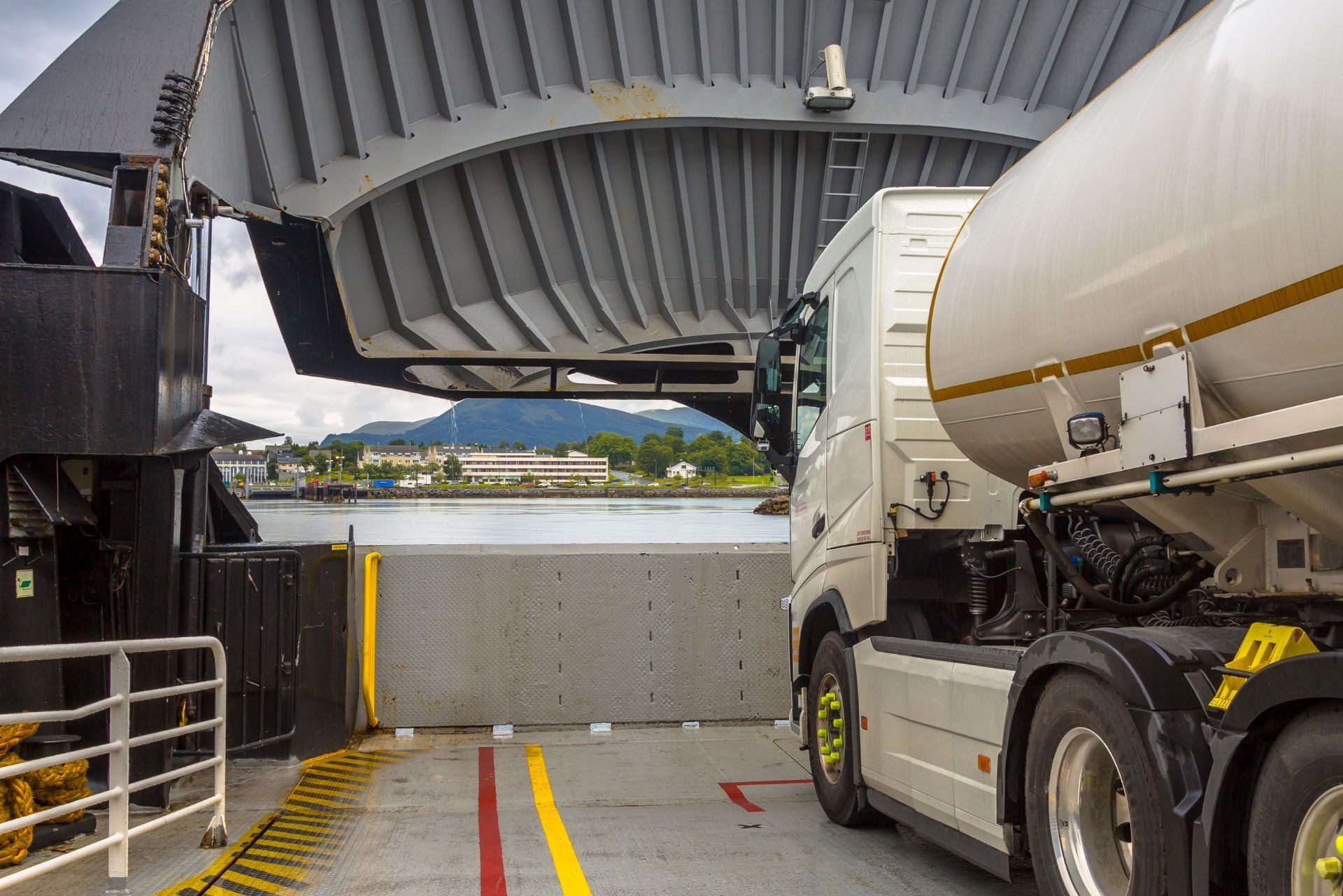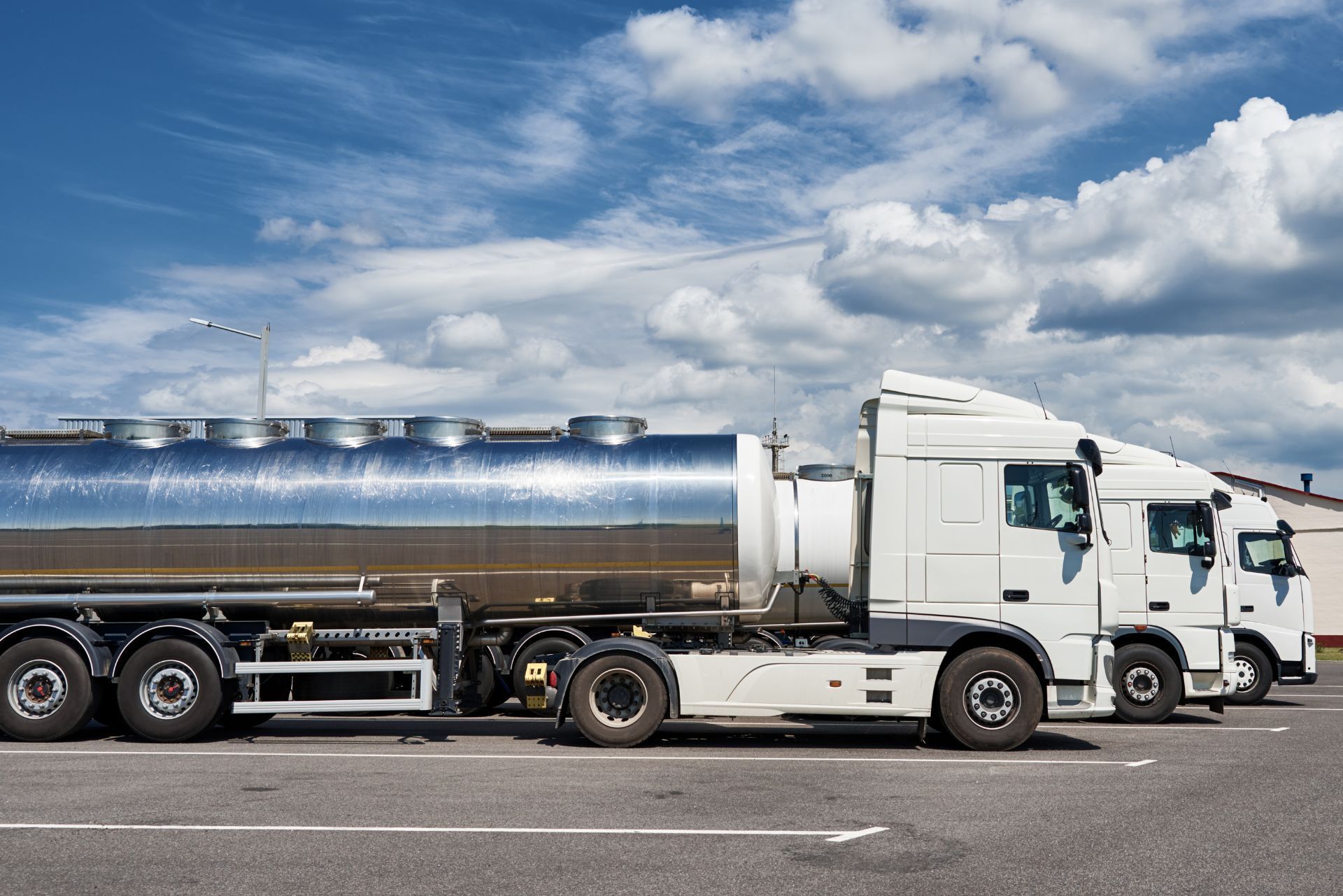Commercial Auto Insurance For Oil, Gas, and Energy Businesses

or call us: (281) 823-8262
Top 3 Recommended Policies

In the dynamic world of oil, gas, and energy, commercial vehicles play a critical role in daily operations. From transporting equipment to facilitating field service visits, these vehicles are indispensable assets. Protecting them with the right commercial auto insurance is essential to safeguard businesses against financial losses, legal liabilities, and operational disruptions. This comprehensive guide delves into everything you need to know about commercial auto insurance tailored specifically for oil, gas, and energy companies.
The commercial auto insurance market in the U.S. was valued at $71.6 billion in 2024, reflecting steady growth despite industry challenges. For companies in energy sectors, understanding market trends, coverage options, and emerging technologies can make a significant difference in managing risks effectively. For more detailed market insights, IBISWorld provides valuable data on the commercial auto insurance landscape here.
Why Commercial Auto Insurance is Crucial for Oil, Gas, and Energy Businesses
Commercial vehicles in oil, gas, and energy sectors often operate under challenging conditions—rough terrains, long distances, and exposure to hazardous materials. These factors increase the likelihood of accidents and damage, making insurance coverage not just a regulatory requirement but a business imperative.
Commercial auto insurance protects businesses from financial liabilities arising from vehicle damage, bodily injury, and property damage caused by accidents. It also covers theft, vandalism, and natural disasters. For energy companies, the stakes are even higher due to the specialized nature of their vehicles and equipment. The high value of the assets involved, combined with the potential for catastrophic incidents, underscores the necessity for robust insurance solutions that can safeguard against significant financial losses.
Moreover, the insurance industry is evolving to offer more flexible and transparent products tailored to specific industries. Innovations such as risk-based pricing and Usage-Based Insurance (UBI) models are gaining traction, especially in sectors with fluctuating vehicle usage patterns. These models align premiums with actual driving behavior, helping companies optimize costs while maintaining adequate coverage. As technology advances, telematics and data analytics are being integrated into insurance policies, allowing businesses to monitor driving habits and vehicle performance in real-time, further enhancing safety and reducing risk.
Understanding the Unique Risks in Energy Sector Transportation
Vehicles used in oil, gas, and energy industries often transport heavy equipment, hazardous materials, or personnel to remote locations. This exposes them to unique risks such as:
- Accidents on uneven or unpaved roads
- Environmental hazards like spills or leaks
- Exposure to extreme weather conditions
- Long hours on the road increasing fatigue-related risks
Addressing these risks requires specialized insurance policies that go beyond standard commercial auto coverage. Businesses must ensure their policies include coverage for hazardous material transportation, environmental liability, and comprehensive vehicle protection. Additionally, companies should consider investing in training programs for their drivers, focusing on safe driving practices and emergency response protocols. This proactive approach not only enhances safety but can also lead to lower insurance premiums as insurers recognize the reduced risk associated with well-trained personnel.
Furthermore, the regulatory landscape surrounding the oil, gas, and energy sectors is constantly evolving, with stricter compliance requirements and safety standards being implemented. This necessitates that businesses stay informed about the latest regulations and ensure their insurance policies are aligned with these changes. Regular audits and risk assessments can help identify potential gaps in coverage and ensure that the business is adequately protected against emerging risks. By taking a comprehensive approach to risk management, companies can not only protect their assets but also enhance their reputation in an industry where safety and reliability are paramount.

Current Trends Impacting Commercial Auto Insurance in the Energy Sector
The commercial auto insurance industry is undergoing significant changes driven by technological advancements, market pressures, and evolving business needs. For oil, gas, and energy companies, staying abreast of these trends is vital for making informed insurance decisions.
Market Growth and Financial Performance
The commercial auto insurance segment is projected to grow at a compound annual growth rate (CAGR) of 4.1% through 2025, reflecting increasing demand for coverage in various industries, including energy. However, the sector faced notable challenges in 2023, recording $5 billion in underwriting losses and a combined ratio of 109.2, indicating that insurers paid out more in claims and expenses than they earned in premiums. This underscores the importance of risk management and careful policy selection for insured businesses.
As energy companies navigate this complex landscape, they are increasingly focusing on diversifying their insurance portfolios to mitigate risks. Many are exploring niche coverage options tailored to specific operational needs, such as environmental liability and cyber insurance, which are becoming essential as digital threats grow. The interplay between market dynamics and regulatory changes also necessitates a proactive approach to risk assessment, ensuring that companies are not only compliant but also adequately protected against unforeseen events.
Rising Costs and Deductibles
One of the pressing concerns for energy companies is the rising cost of claims. The average cost per claim for commercial auto insurance increased by 9% in 2023, driven by factors such as inflation, repair costs, and increased severity of accidents. Additionally, the average retention (deductible) for commercial insurance policies rose to $50,000 in 2023, reflecting insurers' efforts to manage risk exposure.
This increase in costs has prompted energy companies to invest in risk mitigation strategies, such as enhanced driver training programs and advanced safety technologies. By prioritizing safety and compliance, these companies aim to reduce the frequency and severity of accidents, ultimately leading to lower insurance premiums over time. Furthermore, many are leveraging data analytics to identify trends and patterns in their claims history, allowing for more informed decision-making regarding policy adjustments and risk management initiatives.
Adoption of Usage-Based Insurance (UBI)
Usage-Based Insurance models have gained significant traction in commercial auto insurance, with adoption increasing by 18% in 2023. These models leverage telematics and data analytics to monitor driving behavior and vehicle usage, allowing insurers to price policies more accurately. For oil, gas, and energy businesses, UBI offers the potential to reward safe driving and reduce premiums by aligning costs with actual risk.
Companies implementing UBI have reported up to 20% improvement in policyholder retention, demonstrating the value of transparent and behavior-based pricing. This innovation is particularly relevant for fleets with varying usage patterns and diverse driver profiles. Moreover, the integration of UBI with fleet management systems enables real-time monitoring of vehicle performance, further enhancing operational efficiency and safety. As energy companies seek to optimize their fleet operations, the insights gained from UBI can lead to better route planning, reduced fuel consumption, and ultimately, lower operational costs.
Technological Innovations Enhancing Claims Processing
Artificial intelligence and digital tools are transforming claims management in the commercial auto insurance sector. Insurers deploying AI-driven instant claim processing tools have reduced claims settlement times by 35% on average, improving operational efficiency and customer satisfaction. For energy companies, faster claims resolution means less downtime and quicker recovery from incidents.
Key Coverage Considerations for Oil, Gas, and Energy Commercial Auto Insurance
Choosing the right commercial auto insurance policy requires understanding the specific coverage options and how they apply to the unique needs of oil, gas, and energy businesses. Given the complexities of these industries, it is essential for companies to assess their operational risks thoroughly and tailor their insurance policies accordingly. This proactive approach not only safeguards assets but also enhances overall business resilience in an increasingly competitive market.
Liability Coverage
Liability coverage is fundamental, protecting businesses against claims arising from bodily injury or property damage caused by their vehicles. Given the potential severity of accidents involving heavy equipment or hazardous materials, adequate liability limits are crucial. In addition to standard liability coverage, businesses should consider the implications of vicarious liability, which can arise when employees are operating vehicles on behalf of the company. This highlights the importance of ensuring that all drivers are properly trained and that the company has a robust safety policy in place to mitigate risks.
Physical Damage Coverage
This covers damage to the insured vehicles themselves, including collision, comprehensive, and specified perils. For energy sector vehicles exposed to harsh environments, comprehensive coverage is especially important to cover risks like theft, vandalism, and natural disasters. Furthermore, businesses should evaluate the potential costs associated with downtime due to vehicle repairs, as these can significantly impact operations. Implementing a proactive maintenance schedule not only helps prevent accidents but also ensures that vehicles are in optimal condition, thereby reducing the likelihood of claims.
Environmental and Hazardous Materials Coverage
Transporting hazardous materials introduces additional risks of environmental damage and regulatory penalties. Specialized endorsements or standalone policies may be necessary to cover cleanup costs, third-party damages, and fines related to spills or leaks. Companies must stay informed about the evolving regulations surrounding hazardous materials, as non-compliance can lead to severe financial repercussions and reputational damage. Regular training sessions for employees on safe handling and transportation practices can further mitigate these risks, ensuring that all team members are aware of their responsibilities and the potential consequences of mishandling materials.
Non-Owned and Hired Auto Coverage
Energy companies often rent or lease vehicles or use subcontractors’ vehicles. Non-owned and hired auto coverage protects the business from liabilities arising from these vehicles, ensuring comprehensive protection across all transportation activities. This coverage is particularly vital in scenarios where subcontractors may not carry adequate insurance, leaving the primary contractor exposed to potential claims. By including this coverage in their insurance portfolio, businesses can safeguard themselves against unforeseen liabilities that could arise from third-party vehicle usage.
Fleet Management and Risk Control
Effective fleet management practices, combined with insurance, can significantly reduce risks. Programs that incorporate driver safety training, vehicle maintenance, and telematics monitoring not only improve safety but may also qualify businesses for premium discounts. Additionally, leveraging technology to analyze driving patterns and vehicle performance can provide valuable insights into potential areas for improvement. This data-driven approach enables companies to implement targeted interventions, such as adjusting routes or enhancing driver training programs, ultimately leading to a safer and more efficient fleet operation.
Emerging Factors Shaping Commercial Auto Insurance for Energy Fleets
The energy sector is evolving rapidly, and commercial auto insurance must adapt to new realities such as electrification, regulatory changes, and climate risks.
Electrification of Commercial Fleets
In 2023, U.S. commercial and government fleets included over one million electric vehicles (EVs), a 233% increase since 2019. Projections suggest this number will exceed four million by 2030. For oil, gas, and energy companies, integrating EVs into fleets presents both opportunities and challenges for insurance providers.
EVs often require specialized coverage considerations, including battery protection, charging infrastructure liability, and different repair cost profiles. Insurers are beginning to develop products tailored to these needs, reflecting the growing importance of sustainable fleet management. More details on this trend are available from CBIZ’s commercial auto insurance market outlook here.
Climate Change and Catastrophic Risks
Energy companies often operate in regions prone to natural disasters such as hurricanes, floods, and wildfires. These events can cause significant damage to commercial vehicles and infrastructure. The top five states for commercial property insurance claims—Florida, Texas, California, Illinois, and Georgia—also experience high volumes of commercial auto claims, highlighting the interconnectedness of climate risk and insurance needs.
Insurance policies must account for these risks through comprehensive coverage and risk mitigation strategies, including disaster preparedness and resilient fleet operations.
Regulatory and Compliance Considerations
The oil, gas, and energy sectors are heavily regulated, and compliance extends to vehicle operations and insurance requirements. Businesses must ensure their commercial auto insurance policies meet federal and state regulations, including those related to hazardous materials transport and environmental protection.
How to Choose the Right Commercial Auto Insurance Provider
Selecting the right insurer is as important as choosing the right coverage. Energy companies should look for providers with expertise in commercial auto insurance for high-risk industries, offering tailored solutions and responsive service.
Evaluating Provider Capabilities
Key factors include:
- Experience with energy sector fleets and hazardous materials coverage
- Availability of innovative products like Usage-Based Insurance
- Use of AI and digital tools for efficient claims processing
- Strong financial stability and claims-paying ability
Providers that leverage technology to improve transparency and flexibility can offer significant advantages in managing insurance costs and claims outcomes. The commercial auto insurance industry is witnessing a wave of product innovations aimed at these goals, as highlighted by recent market growth reports here.
Cost vs. Coverage Balance
While cost is always a consideration, the cheapest policy may not provide adequate protection. Energy companies should focus on comprehensive coverage that addresses their unique risks, even if it comes at a higher premium. Usage-Based Insurance and risk management programs can help optimize costs without sacrificing coverage quality.

Conclusion: Securing Your Energy Business with the Right Commercial Auto Insurance
Commercial auto insurance is a vital component of risk management for oil, gas, and energy businesses. The sector’s unique operational challenges, combined with rising claim costs and evolving technologies, make it essential to choose tailored insurance solutions that provide robust protection and cost efficiency.
By understanding current market trends, coverage options, and emerging factors such as electrification and climate risks, energy companies can make informed decisions that safeguard their fleets and support business continuity. Embracing innovations like Usage-Based Insurance and AI-driven claims processing further enhances the value of commercial auto insurance in this demanding industry.
For ongoing insights into the commercial auto insurance market and strategies for energy businesses, resources such as
WIFI Talents offer comprehensive data and analysis to help navigate this complex landscape.
Contact Us
Phone
Location
9595 Six Pines Dr, Suite 8210, The Woodlands, TX 77380
